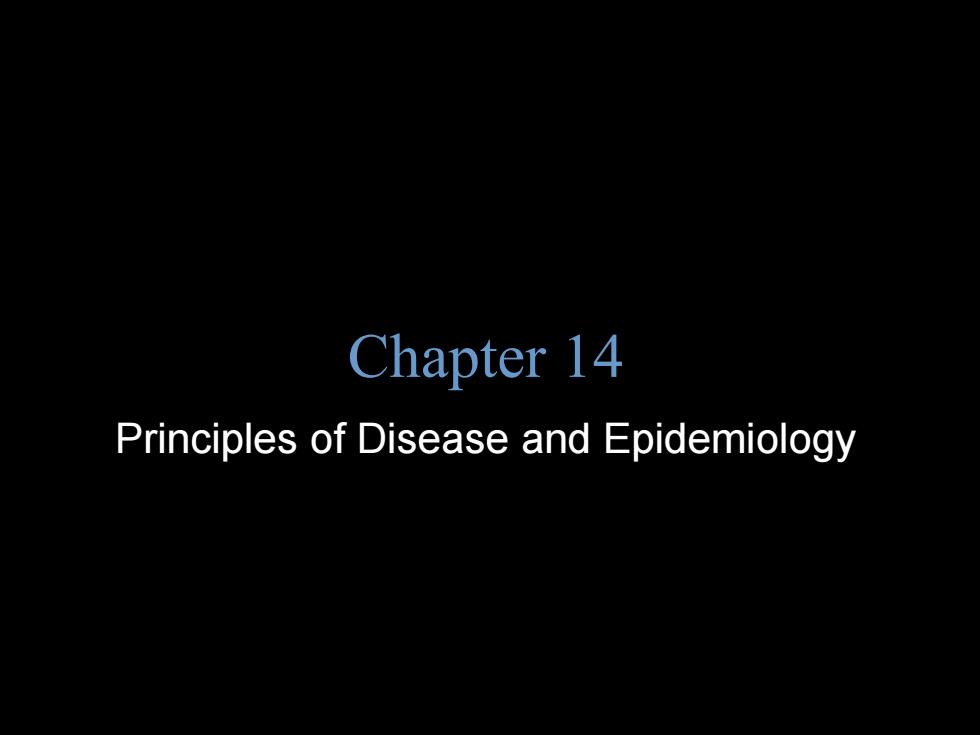
Chapter 14 Principles of Disease and Epidemiology
Copyright © 2004 Pearson Education, Inc., publishing as Benjamin Cummings B.E Pruitt & Jane J. Stein Chapter 14 Principles of Disease and Epidemiology
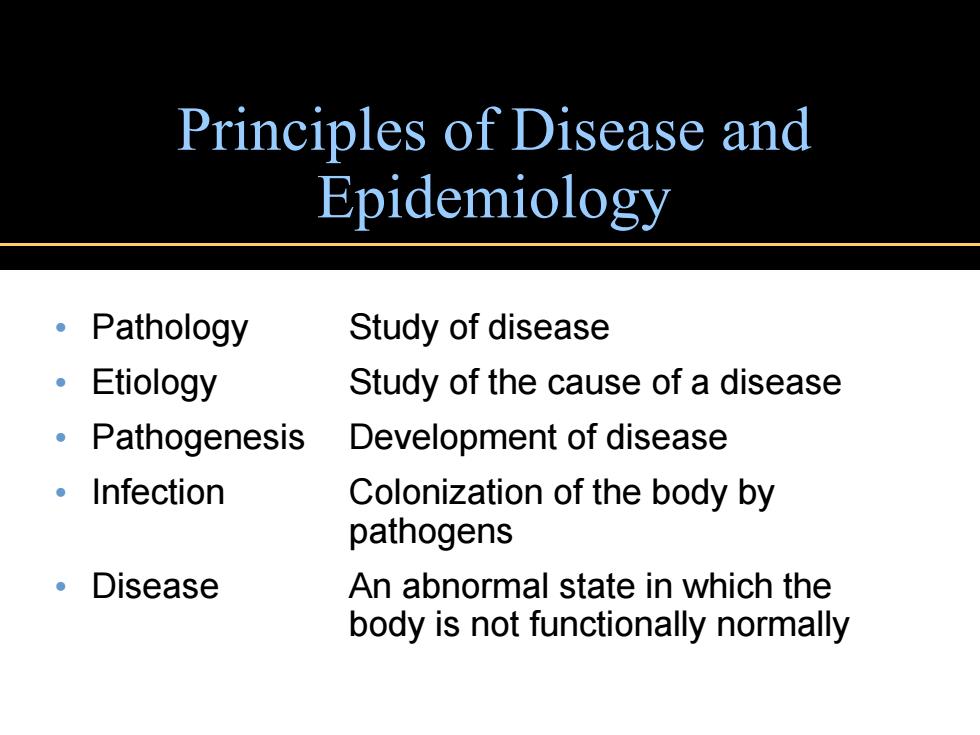
Principles of Disease and Epidemiology 。Pathology Study of disease 。Etiology Study of the cause of a disease 。Pathogenesis Development of disease 。Infection Colonization of the body by pathogens Disease An abnormal state in which the body is not functionally normally
Principles of Disease and Epidemiology • Pathology Study of disease • Etiology Study of the cause of a disease • Pathogenesis Development of disease • Infection Colonization of the body by pathogens • Disease An abnormal state in which the body is not functionally normally
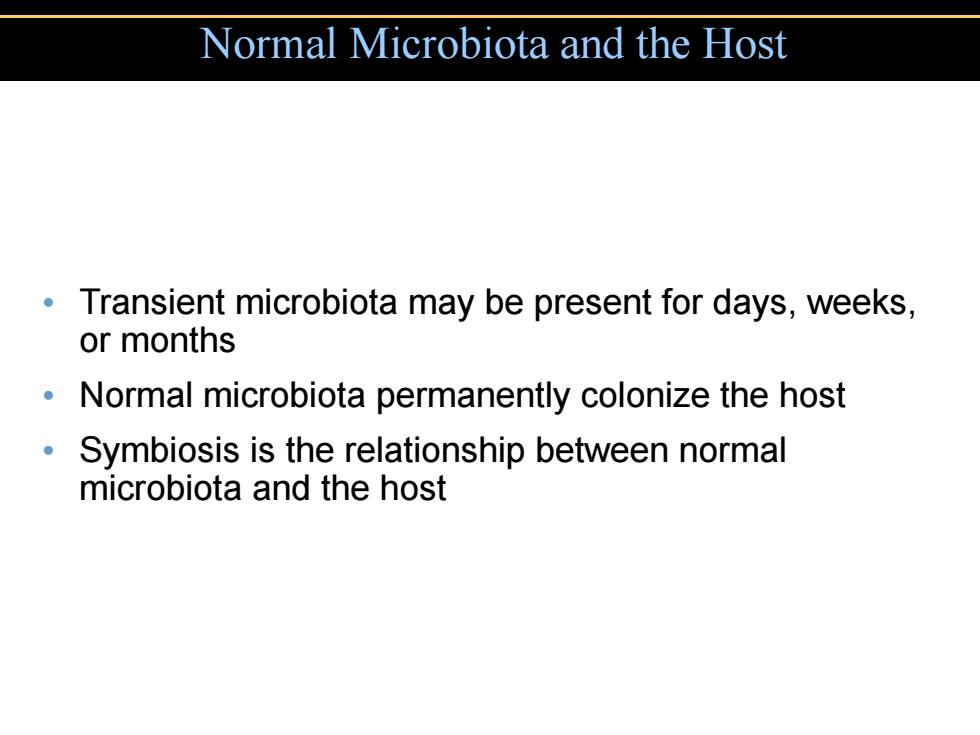
Normal Microbiota and the Host Transient microbiota may be present for days,weeks, or months Normal microbiota permanently colonize the host Symbiosis is the relationship between normal microbiota and the host
• Transient microbiota may be present for days, weeks, or months • Normal microbiota permanently colonize the host • Symbiosis is the relationship between normal microbiota and the host Normal Microbiota and the Host
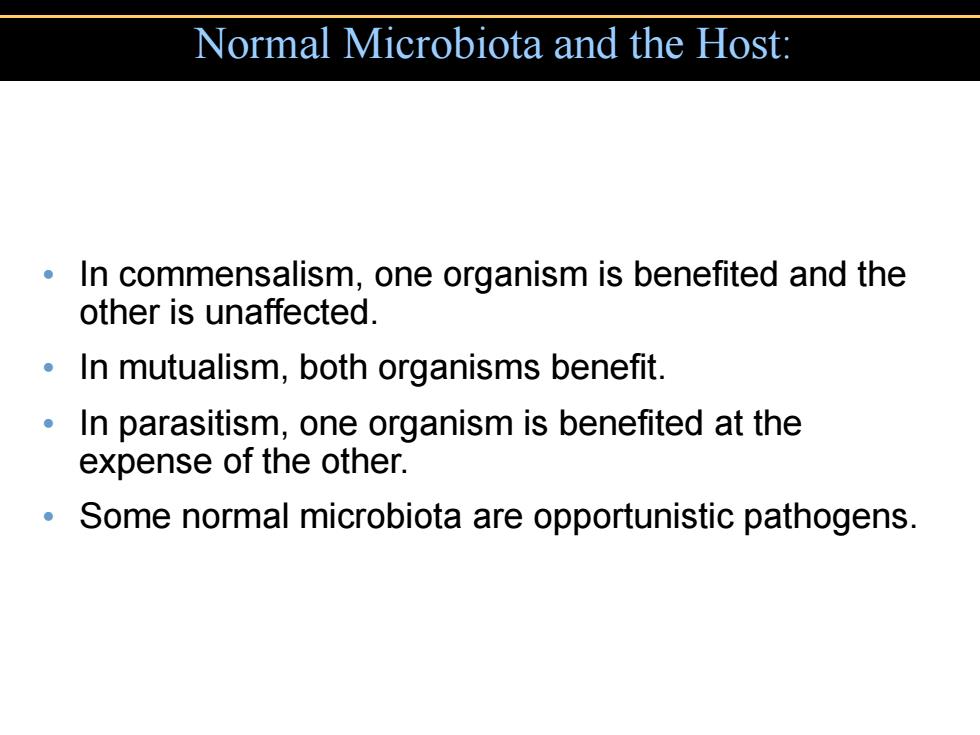
Normal Microbiota and the Host: In commensalism,one organism is benefited and the other is unaffected. In mutualism,both organisms benefit. In parasitism,one organism is benefited at the expense of the other. Some normal microbiota are opportunistic pathogens
• In commensalism, one organism is benefited and the other is unaffected. • In mutualism, both organisms benefit. • In parasitism, one organism is benefited at the expense of the other. • Some normal microbiota are opportunistic pathogens. Normal Microbiota and the Host:
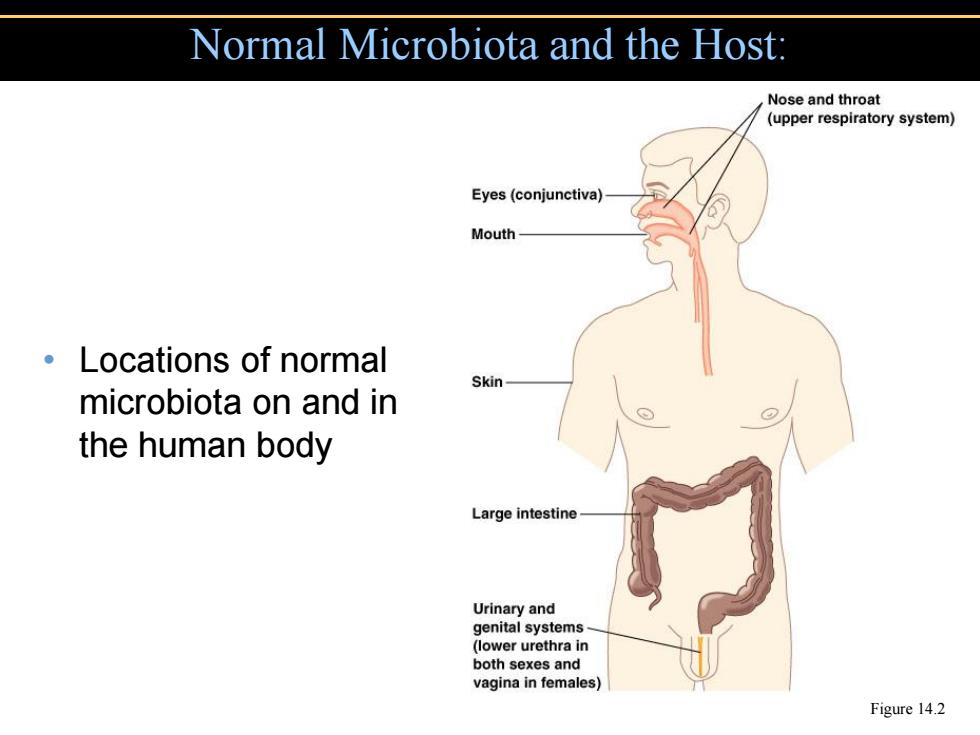
Normal Microbiota and the Host: Nose and throat (upper respiratory system) Eyes(conjunctiva) Mouth- Locations of normal Skin microbiota on and in the human body Large intestine Urinary and genital systems (lower urethra in both sexes and vagina in females) Figure 14.2
Figure 14.2 • Locations of normal microbiota on and in the human body Normal Microbiota and the Host:
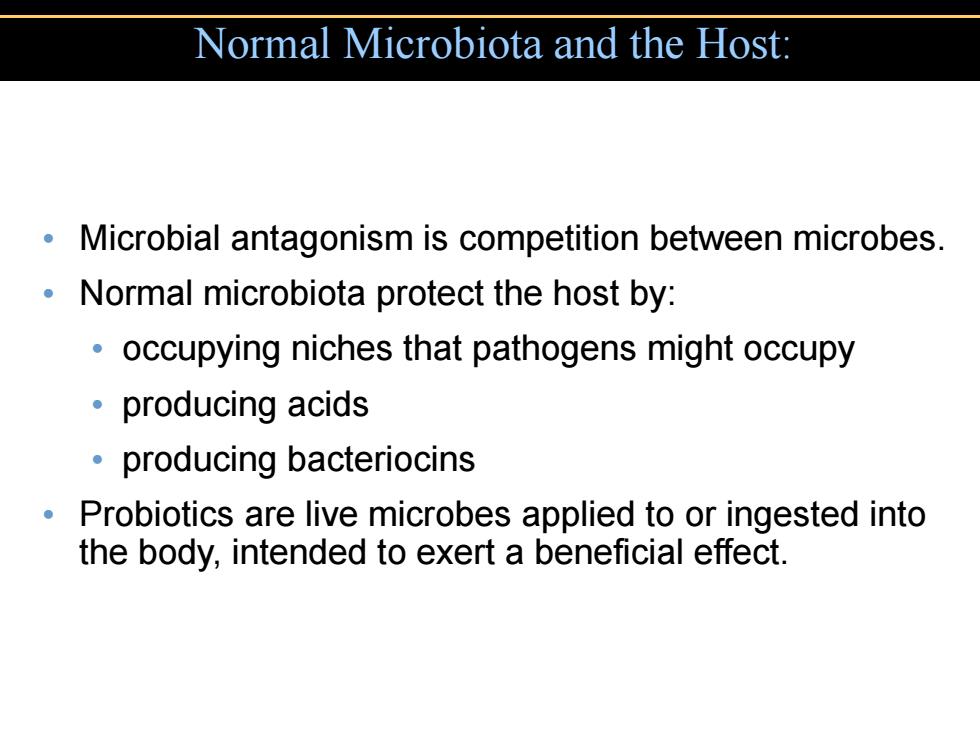
Normal Microbiota and the Host: Microbial antagonism is competition between microbes. Normal microbiota protect the host by: occupying niches that pathogens might occupy 。producing acids producing bacteriocins Probiotics are live microbes applied to or ingested into the body,intended to exert a beneficial effect
• Microbial antagonism is competition between microbes. • Normal microbiota protect the host by: • occupying niches that pathogens might occupy • producing acids • producing bacteriocins • Probiotics are live microbes applied to or ingested into the body, intended to exert a beneficial effect. Normal Microbiota and the Host:
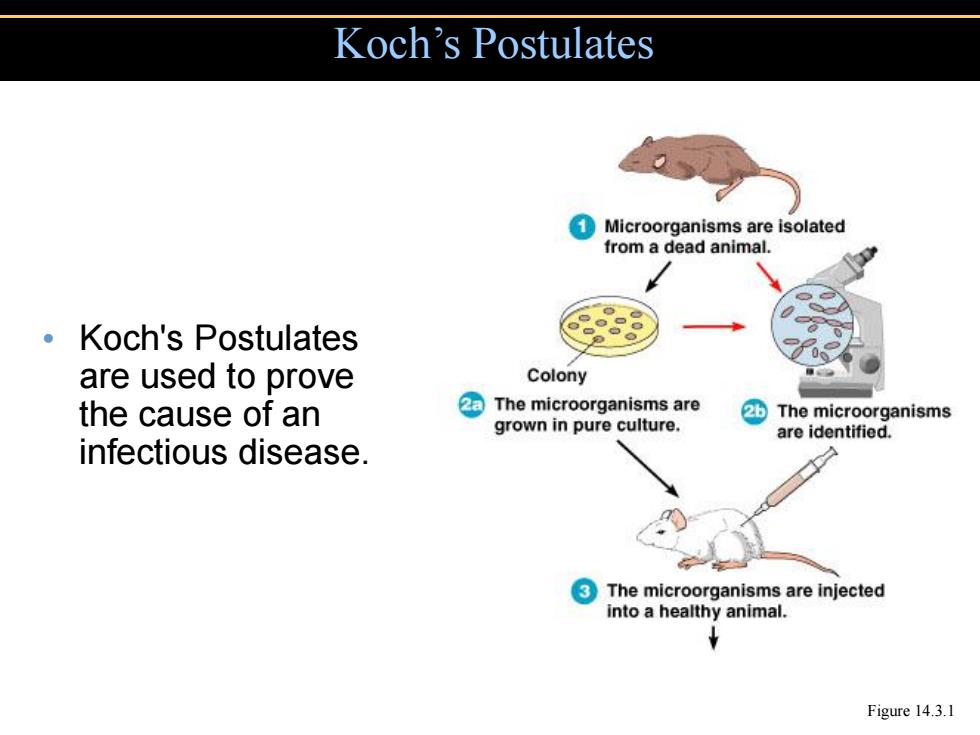
Koch's Postulates Microorganisms are isolated from a dead animal. 。Koch's Postulates are used to prove Colony the cause of an The microorganisms are The microorganisms grown in pure culture. are identified. infectious disease. 3The microorganisms are injected into a healthy animal. Figure 14.3.1
• Koch's Postulates are used to prove the cause of an infectious disease. Koch’s Postulates Figure 14.3.1
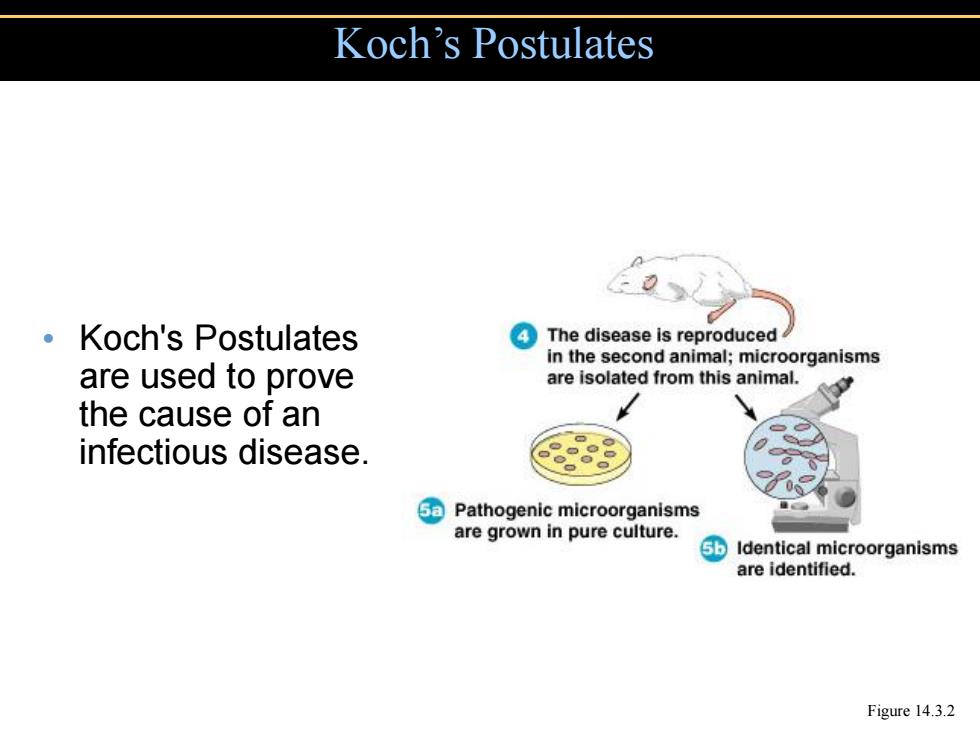
Koch's Postulates 0 。Koch's Postulates The disease is reproduced in the second animal:microorganisms are used to prove are isolated from this animal. the cause of an infectious disease. Pathogenic microorganisms are grown in pure culture. Identical microorganisms are identified. Figure 14.3.2
• Koch's Postulates are used to prove the cause of an infectious disease. Koch’s Postulates Figure 14.3.2

Classifying Infectious Diseases ·Symptom A change in body function that is felt by a patient as a result of disease Sign A change in a body that can be measured or observed as a result of disease. 。Syndrome A specific group of signs and symptoms that accompany a disease
Classifying Infectious Diseases • Symptom A change in body function that is felt by a patient as a result of disease • Sign A change in a body that can be measured or observed as a result of disease. • Syndrome A specific group of signs and symptoms that accompany a disease
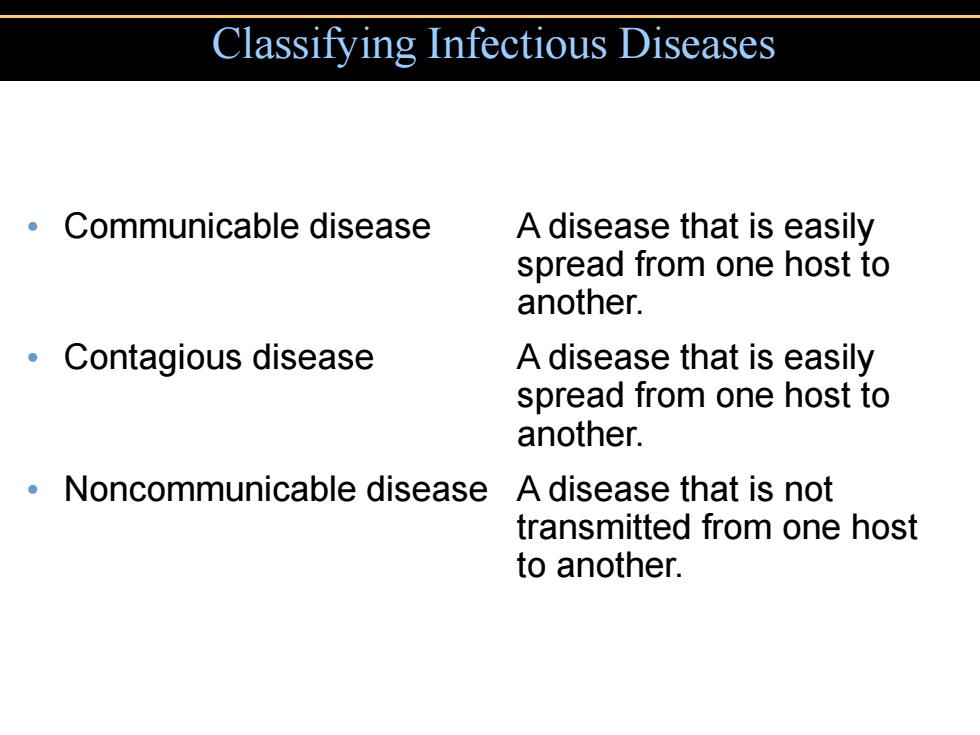
Classifying Infectious Diseases Communicable disease A disease that is easily spread from one host to another. ·Contagious disease A disease that is easily spread from one host to another. Noncommunicable disease A disease that is not transmitted from one host to another
Classifying Infectious Diseases • Communicable disease A disease that is easily spread from one host to another. • Contagious disease A disease that is easily spread from one host to another. • Noncommunicable disease A disease that is not transmitted from one host to another